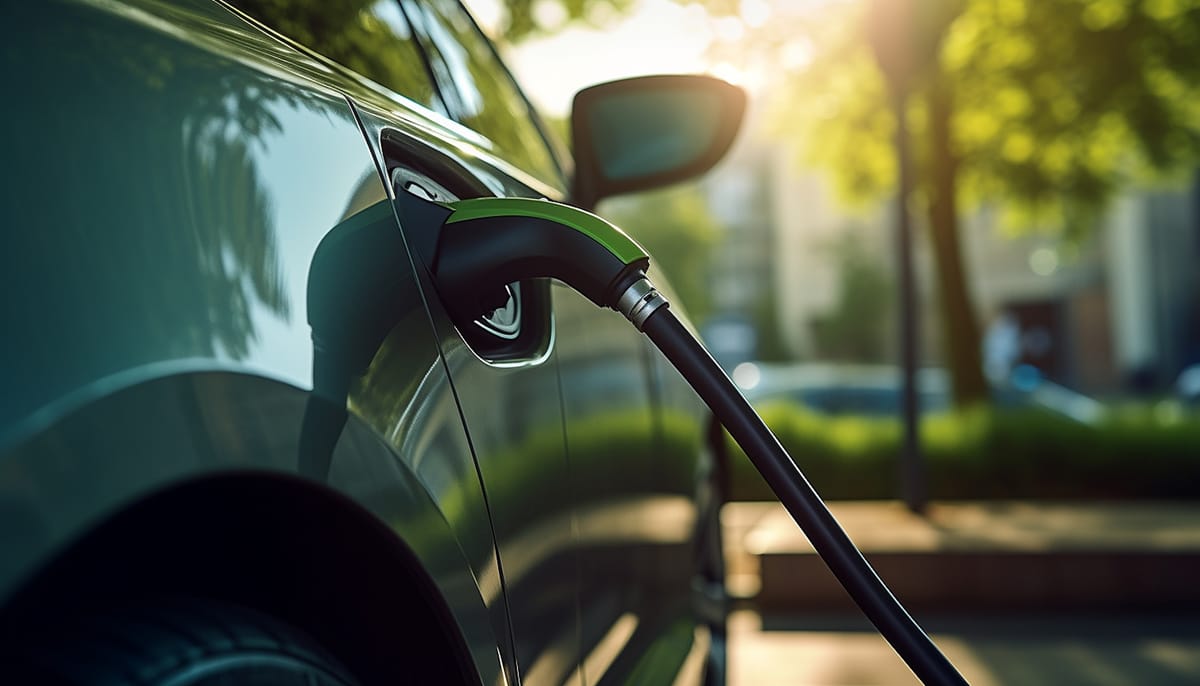This week, we're exploring BYD's new battery and charging system, a startup making butter out of methane, and a push by Republicans in the United States to save climate funding from the IRA.
If you enjoy our Weekly Brief, please consider sharing it with your friends and colleagues in the climate community and encourage them to subscribe here. You can also follow Tectonic on LinkedIn and Instagram for more regular updates.
BYD introduces fast-charging system: Chinese EV maker BYD unveiled a new battery and charging system that can charge an electric vehicle in just five minutes, providing around 400 kilometers of range. The company's stock jumped to a record high following the announcement. The ultra-fast charging capability is expected to address one of the key hurdles to electric vehicle adoption – charging speed – and could give BYD a competitive edge in the market. BYD has committed to building more than 4,000 charging stations across China to support the new electric vehicles and has raised around $5.6 billion in a share sale to fund its expansion plans. The company's latest EV platform will also allow cars to reach a speed of 100 kilometers per hour in just 2 seconds, and will feature advanced driver-assistance technologies, such as lane-keeping and adaptive cruise control, in some of its models.
Making butter from methane: The California-based startup Savor has developed a unique method of producing butter, not from plants or animals, but from energy sources such as methane, captured carbon dioxide, or green hydrogen. Their thermochemical process turns carbon, hydrogen, and oxygen into fatty acids, which their team calls "Earth's most ancient chemistry." The company creates fats and oils without the need for agriculture, reducing the environmental impacts of land use, hormones, antibiotics, and fertilizers. Savor aims to reduce emissions by using alternative energy sources and working with companies focused on air capture. Savor's butter has been featured in various dishes, including popcorn, blini, and mushroom "scallops.” The company has worked with chefs over the past year to test its butter and collaborate on creations. Its first customers include Michelin-starred restaurants SingleThread and One65, as well as San Francisco's Jane the Bakery, with plans to launch as an ingredient supplier first rather than directly to consumers.
Using CO2 to make concrete: Clairity Tech, a startup founded by former SpaceX engineer Glen Meyerowitz, has launched a new carbon removal plant called Project Juniper in North Las Vegas. It is the first "integrated" plant in the US to handle both carbon capture and storage in one place and generates clean water as a byproduct. The plant uses a unique material similar to baking soda to capture CO2 from the air. Unlike other companies in the space, Clairity is starting by adding the captured CO2 to materials, such as fly ash, to make lower-carbon concrete. It can also inject it into other waste materials to permanently store it, with the potential to make more money by selling value-added products.
Al Gore's venture fund raises $175M: The venture started by Al Gore's Generation Investment Management has raised $175 million to invest in businesses that enable the restoration of land degraded by agriculture and deforestation, to make "catalytic" investments in areas such as biological fertilizers, regenerative agriculture, and waste-to-energy projects. The investment will support the natural climate solutions strategy of Generation's Just Climate, targeting four sectors: food value chains, forest and ecosystem restoration, waste and water, and enabling technologies. The $175 million investment was made by anchor investors, including Microsoft Corp.'s Climate Innovation Fund and the California State Teachers' Retirement System, bringing the total assets overseen by Generation Investment Management to $1.8 billion.
Republicans push to protect Biden's climate investments: A growing group of Republicans and business leaders are pushing to protect the clean energy tax credits that were signed into law by President Biden in 2022 as part of the Inflation Reduction Act. The clean energy tax credits have helped spur a boom in manufacturing investment in the United States, especially in Republican districts, with the United States recording more than $315 billion in clean energy investments last year, according to the International Energy Agency. A group of 21 House Republicans, led by Representative Andrew Garbarino of New York, wrote a letter to Representative Jason Smith of Missouri, the chairman of the Ways and Means Committee, asking him to preserve the credits, arguing that supporting renewable energy is in line with President Trump's "energy dominance" agenda. The credits have helped push billions of dollars into domestic factory construction in recent years, with about 80 percent of the investments from the bill going to Republican congressional districts.
Nvidia looks to harness AI to solve the electricity needs of AI: Nvidia announced a partnership with the Electric Power Research Institute (EPRI) to use artificial intelligence to solve problems facing the electrical grid, which are largely caused by the rising power demand from AI itself. The Open Power AI Consortium, which includes companies such as PG&E, Con Edison, Constellation Energy, Duke Energy, and tech companies like Microsoft and Oracle, will use domain-specific AI models to devise new ways to tackle the predicted problems in the power industry. These models will be open-sourced and available to researchers. The power industry faces surging demand from data centers, with electricity demand expected to grow by 4% annually in the coming years, according to the International Energy Agency.
Microsoft invests in solar: Microsoft is expanding its renewable energy portfolio by adding 475 megawatts of solar power to support its growing data centers, having signed a deal with energy provider AES for three solar projects in Illinois, Michigan, and Missouri. The company's decision to invest in solar energy reflects the urgency of its needs, as solar power is quick to install, inexpensive, and modular. Microsoft has consistently invested in solar energy, contracting 389 megawatts from three solar projects in Illinois and Texas in February and anchoring a $9 billion renewable power coalition organized by Acadia, with its renewable portfolio already exceeding 34 GW of capacity. The combination of solar and battery storage, although more expensive than solar or wind power alone, is becoming more competitive with natural gas power plants due to the declining costs of solar and batteries.
Explore ways we can work together.
Fast Company Most Innovative Companies of 2025: Fast Company released its 2025 Most Innovative Companies of 2025, including sub-lists of companies working in energy and sustainability.
States look for new revenue as gas taxes drop: The increasing adoption of electric and fuel-efficient cars is projected to decrease gas tax revenue, which is the largest source of transportation revenue for states, forcing officials to look for new ways to fund transportation infrastructure. The downward revenue trend is already affecting states like Pennsylvania, where gas tax revenues dropped an estimated $250 million last year compared to 2019, and Oregon, where the Department of Transportation has estimated a shortfall of over $350 million for the next budget cycle, which could lead to cuts in services like winter snow plowing and road maintenance. To compensate for lost revenue, 34 states have raised their gas tax since 2013, with California having the highest gas tax at over 69 cents a gallon. Other states have taken steps like indexing their gas tax to inflation, raising registration fees for electric vehicles, and taxing electric vehicle charging stations.
Judge temporarily stops climate grant clawback: A federal judge has issued a temporary restraining order that blocks the Environmental Protection Agency from withdrawing $14 billion in climate grant funding, which has been held in accounts at Citibank since late last year. The E.P.A., under the administration of Lee Zeldin, had attempted to terminate $20 billion in grants, citing concerns about fraud and political favoritism in the selection of recipients. Judge Chutkan ruled that the agency had not provided "credible evidence" to support its claims. The ruling affects $14 billion of the $20 billion in grants and prevents the E.P.A. from moving forward with the grant termination process until the case is resolved in court. Citibank is also prohibited from transferring the funds back to the federal government if requested.
Greenpeace ordered to pay $660 million: Greenpeace has been ordered to pay over $660 million in damages to Energy Transfer Partners LP, a Texas-based oil company after being found liable for defamation, conspiracy, and other claims related to protests against the Dakota Access pipeline nearly a decade ago. The protests, which took place during the pipeline construction from western North Dakota to southern Illinois, sparked clashes between environmentalists and police, drawing international attention. Energy Transfer claimed that the negative publicity generated by the protests caused it to lose hundreds of millions of dollars. Greenpeace has stated that it will appeal the decision.


